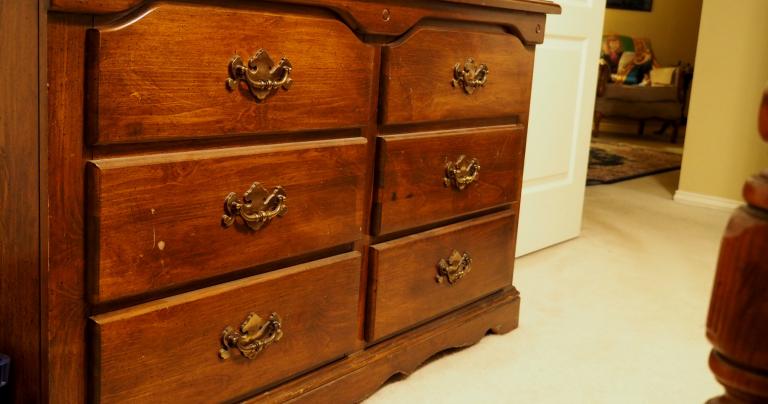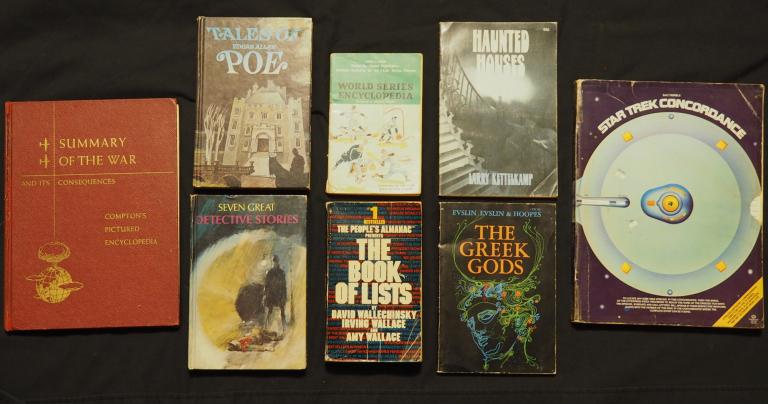Saturday Boredom Busters: February 23rd
SIOUX FALLS, SD -
The Sioux Empire Home Show features more than 240 home-related exhibits at the
Sioux Falls Convention Center this weekend. Today's activities include a
kids Building Block Competition from 10:30 a.m. to 2:30 p.m. The Home
Show runs from 10 a.m. to 8 p.m. today. Sunday's hours are 11 a.m. to 5
p.m. Admission is $7, free for kids 12 and under.
Sanford Health is
hosting a Family Health Fair from 10 a.m. to 2 p.m. at The Empire Mall.
Kids can try out yoga and check out the Zoo Express. There will
also be skin screenings with Sanford Dermatology.You can also talk with our
KELOLAND meteorologists and try your hand at the green screen.
The Dakota Players,
an educational outreach troupe of the Black Hills Playhouse, presents The Great
American Talent Show. The performance is at 7 p.m. at the Orpheum Theater
in downtown Sioux Falls. Tickets are $10, student tickets are $5.
Baby Storytime at
the Main Library in downtown Sioux Falls is for babies and infants 6-24 months
old. It goes from 10:30 to 11:10 a.m. Wee Read and Explore, for
children ages 3-6 goes from 11:30 a.m. to noon at the Prairie West Branch.
The Sioux Falls
Sports Cards Show features new and vintage cards plus memorabilia at
American Legion Post 15 in Sioux Falls. The hours are from 9 a.m. to 3
p.m. Admission is free.
Skate City in Sioux
Falls is hosting a Superhero Skate from 10 a.m. to noon. Kids' admission
is $5, parents skate for free. Regular skate rentals still apply.
Skate City is located at 2901 West 3rd.
The Stampede hockey
team is changing its name to the Sioux Falls Fighting Weiner Dogs for their
game against the Omaha Lancers. It's in honor of the annual Sioux Nation
Pet Clinic Weiner Dog Races, plus a live auction to benefit Dakota Dachshund
Rescue. The puck drops at 7:05 p.m. at the Denny Sanford PREMIER Center.
Find more activities on our KELOLAND.com Events Calendar
02
Is Boredom A Good Thing?
It’s good for kids
to be bored. Or at least that’s what author and editor Pamela Paul said in a
recent New York Times opinion piece titled Let Children Get Bored Again.
When people say
that something I found torturous as a child is really good for you I usually
have a strong negative reaction. And I did.
I complain about
people who comment without reading and I don’t want to do that myself. So I
read the essay – twice. And I still don’t think boredom is a good thing.
But the essay is
more nuanced than the title implies, and it refers to our current society –
which is a very different environment from the one I grew up in a hundred years
ago, or so it seems. I think this topic is worth exploring in more detail for
us as adults, as well as for kids.

same furniture, same view, different
house
I don’t have
children. I didn’t like children when I was a child and that never changed. So
I generally avoid telling people how to raise their own children, beyond the
basics. Get them vaccinated, don’t hit them, and while you have the right (and
arguably, the obligation) to raise them in your religious tradition, don’t
indoctrinate them in any religion or the lack thereof. Do the best you can and
good luck to you.
But the fact is
that many children are overscheduled. Here’s an excerpt from the editorial.
Only a few short
decades ago, during the lost age of underparenting, grown-ups thought a certain
amount of boredom was appropriate… Nowadays, subjecting a child to such
inactivity is viewed as a dereliction of parental duty… Every spare moment is
to be optimized, maximized, driven toward a goal.
While poor families
are doing all they can just to get by, middle class families are trying to give
their kids any and every advantage to prepare for a society where there are
winners, losers, and not much in between. That they feel compelled to do this
points toward the need for significant changes in our socio-economic system,
but that’s another rant for another time.
The problem is that
this “every advantage” approach concentrates on building a resume for a college
application, on checking off all the appropriate boxes. And all adults –
parents or not – should understand first-hand the difference between checking a
box and actually learning something. As with generals who are always preparing
to fight the last war, the resumes these aggressive parents are trying to build
are almost certain to be out of date by the time their children enter the
workforce.
We outlawed child
labor, and for a while we understood that childhood is a time for learning and
for trying on adult roles to see how they fit (otherwise known as play). Now
we’re going in the wrong direction, only replacing “labor” with “preparing for
labor.”
We can do better.
When I think back
over my childhood, there are three memories that still bring me pain. The first
was the Christian fundamentalism that I’ve written about extensively. No one
should have to endure that. The second was farm work, which in all fairness was
necessary and educational. Doesn’t matter – I still hated it. The third was
boredom.
By the fourth grade
at the latest, my last-of-May joy over the pending end of school was tempered
by the realization that within a couple weeks I was going to be bored out of my
mind. I lived on a small farm in what’s now suburbs, but then was largely
undeveloped rural land. There was no “ride your bicycle to the park” because
there were no parks, and the road we lived on was barely safe for cars, much
less bikes. I didn’t learn to ride till I was an adult.
For most of the
summer there was farm work, church, and TV (with three channels)… and I
preferred boredom to work and church. There were occasional trips to the mall
and such – this was Chattanooga in the 1970s, not Kansas in the 1880s. But
there were long stretches of Nothing. To. Do.

the woods – my sanctuary
Complaining about
it was dangerous. Rarely would it bring something good. Sometimes it would
bring sympathy. Other times it would bring responses like “OK, go clean the
chicken house.” Which I heard as “your problems aren’t important to me.” I’m
sure that’s not what my parents intended, but that’s what I heard.
I’m an adult now, with the perspective of an adult. And after
consideration I’m convinced that unscheduled free time is a good thing. Learning
to entertain yourself is a good thing.
Long blocks of
boredom are a bad thing.
Pamela Paul quotes
Maria Semple’s 2012 novel Where’d You Go, Bernadette, where a mother says to
her daughter:
You are bored. And
I’m going to let you in on a little secret about life. You think it’s boring
now? Well, it only gets more boring. The sooner you learn it’s on you to make
life interesting, the better off you’ll be.
I remember my
mother saying something very similar. I don’t remember the context, but I do
remember she was doing laundry at the time. That might have had something to do
with it. And I remember thinking “you’re an adult – if you’re bored you can do
something about it.”
I don’t think I’ve
been bored for more than a couple hours at any time since my mid 20s. I’ve been
stressed, frustrated, overworked, and at times downright scared. But bored?
I remember being
bored. I’ll take the challenges of adulthood over boredom every single time.
I wish I hadn’t
been so bored as a kid. I do not wish I had the kind of regimented days many
kids have in this era. Because while the boredom was torturous, some of the
things I did to alleviate it were very, very helpful.
I read everything I
could get my hands on. I always had my own books, though never enough
(remember, books are wealth). That’s why I never got into comics. I could read
a comic book in 15 minutes, but a regular book would keep me occupied for
hours. Before I was born someone gave my father a set of encyclopedias from
1946. They were horribly out of date when I first picked them up, but they were
a place to start, and I could browse. And I did. We always had the local
newspaper, which was pretty good.
I watched too much
TV, and it gave me too many wrong ideas about what a good life was supposed to
look like. But there was Dark Shadows, and Night Gallery, and Star Trek.
Especially Star Trek. I didn’t lose interest in the later series so much as I
didn’t have time for them. But I can still quote lines from TOS.
And there were the
woods.
The woods were my
safe space where I could be and say all the things that were too dangerous for
me to be and say around other people. They were a magical place, where anything
could be waiting just over the next hill, just behind that clump of trees. And
although I didn’t have vocabulary for it then, I learned there is magic in wild
places.
I couldn’t have
learned all that if I had been shuttled from school to soccer practice to music
lessons to advanced tutoring and home just in time for bed. Honestly, if I had
to choose between that or what I had, I’ll take what I had. It worked out well.
But while I did
these things to escape boredom, it didn’t take boredom to get me to do them. I
was always reading. I was always fascinated with the woods. The TV was always
there.
But in those long
summers before I could drive, even they weren’t enough.

a few of the books I kept from all
those years ago
As many adults are
prone to do, I think Pamela Paul is sanitizing and romanticizing an unpleasant
part of her own childhood. She says:
It’s not really the
boredom itself that’s important; it’s what we do with it. When you reach your
breaking point, boredom teaches you to respond constructively, to make
something happen for yourself. But unless we are faced with a steady diet of
stultifying boredom, we never learn how.
Constant
stimulation is not good. But we need not descend into boredom to escape it. We
can set aside quiet time for meditation or for long walks. We can turn off the
TV and the computer and let our minds wander where they will. We can even turn
off the radio when we’re driving.
And if we do these
things and do them regularly, we can teach them to our children.
Boredom was one of
the worst parts of my childhood. I managed it the best I could when I was a
child, and I promised myself I’d never descend into that kind of monotony again
once I was in charge of my own life.
I’ve kept that promise.
03
4 Questions to Ask Yourself Before Switching Careers
Whether it stems
from boredom or a desire to pursue a passion you've always bottled up,
switching careers is a move that's often worth pursuing at various stages of
life. This especially holds true if you're not satisfied in your current
industry and are slowly but surely creeping toward the point of burnout.
That said, the last
thing you want to do is change careers and wind up regretting it after the
fact. Here are a few questions you therefore must ask yourself before taking
that leap.

IMAGE SOURCE: GETTY
IMAGES.
1. Am I in a strong place financially?
Switching careers
often means taking a lower-level job and a lower salary to go along with it.
And while you might think you won't mind earning less, once you're forced to
make lifestyle changes to accommodate your income downgrade, you might quickly
bemoan your decision. Before you change careers, ask yourself if you have
enough money in savings to tide yourself over during that transition period in
which you're building back up in a new field and aren't earning at your usual
level. If you have a decent amount of money in the bank, you might dip into
your savings for a year or two to maintain your lifestyle while you navigate
your new role (or series of roles). But if your finances are shaky at best, you
might want to hold off until you're in a more secure spot.
2. Is my personal life stable?
We all have things
that come up in our personal lives that make for an unsettled situation. Having
a baby, for example, is a wonderful thing, but it can certainly upend your home
routine and cause worlds of stress as well. Before you switch careers, think
about how stable things are at home and whether the time is right to introduce
another dose of upheaval into your world. In some cases, it might pay to wait
six months or a year until things settle down.
3. Do I have the skills needed to excel at this career?
Maybe you've always
dreamed of abandoning your boring job as a lawyer and pursuing a career as a
graphic designer. But if you're not up to speed on the latest design programs,
your chances of landing a decent job are apt to be fairly slim. Before changing
careers, do some research and make sure you actually have a shot at getting hired
in your desired field. If not, build those essential skills before moving
forward.
4. Have I tried dabbling in my new career before fully diving in?
Maybe you've always
dreamed of writing for a living. But while it might seem like the kind of job
you'd enjoy, if all you've done professionally thus far is crunch numbers as an
accountant, you're hardly in a position to know whether writing is something
you really want to do full time. Before changing industries, try doing whatever
it is you want to do as a side hustle first. This won't work for all fields,
but in some cases, it's feasible. For example, if you're convinced you want to
be a writer, spend a little time on evenings and weekends getting paid to do
so, and see how well you're able to cope with editor feedback and client
criticism. You might love it; or you might realize the grass isn't actually
greener on that end of the career spectrum.
There's nothing wrong with changing careers and giving yourself the
chance to explore exciting new opportunities. Just make sure the timing is
right, you're reasonably qualified to jump industries, and you actually know a
little bit about what you're getting yourself into.
No comments:
Post a Comment